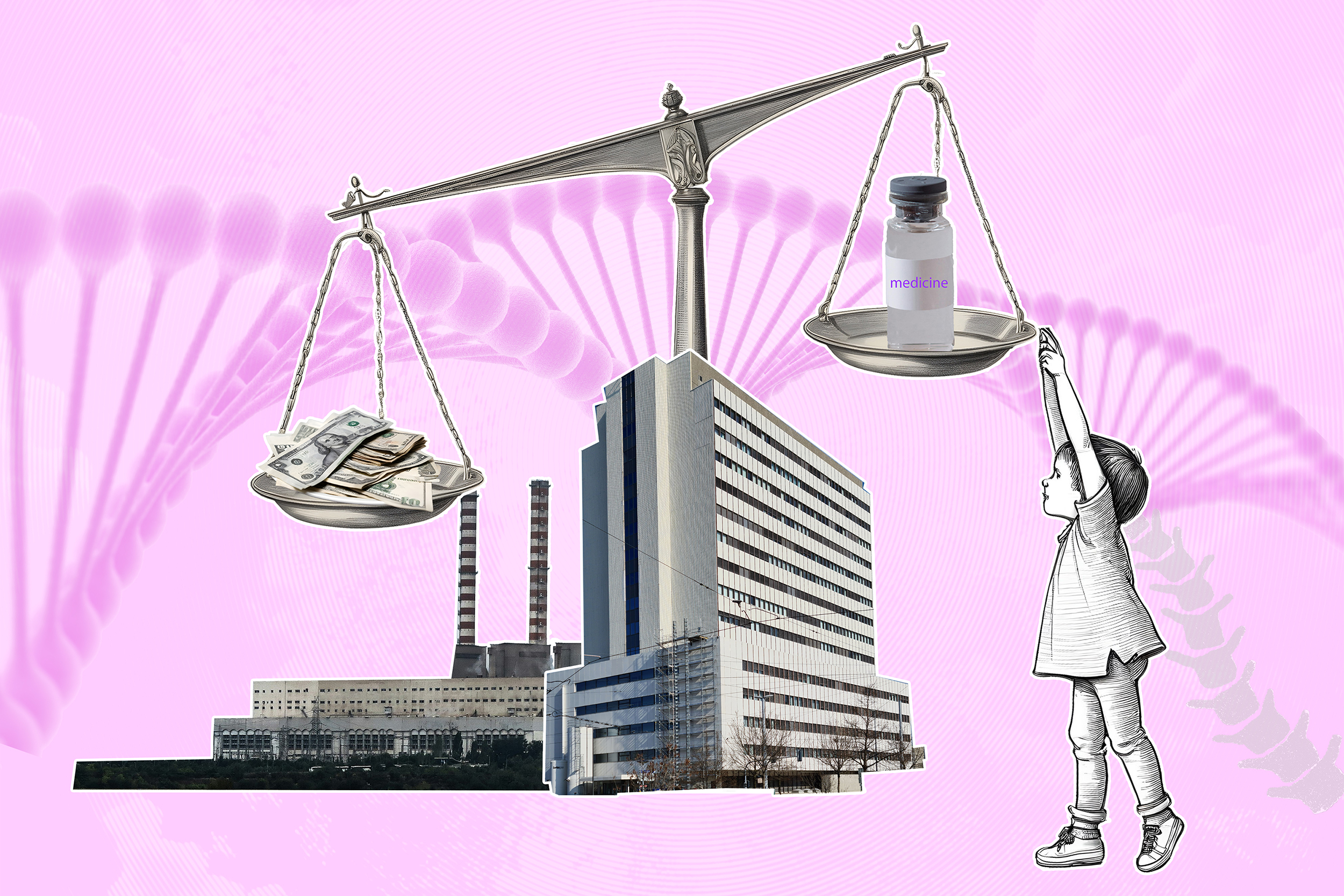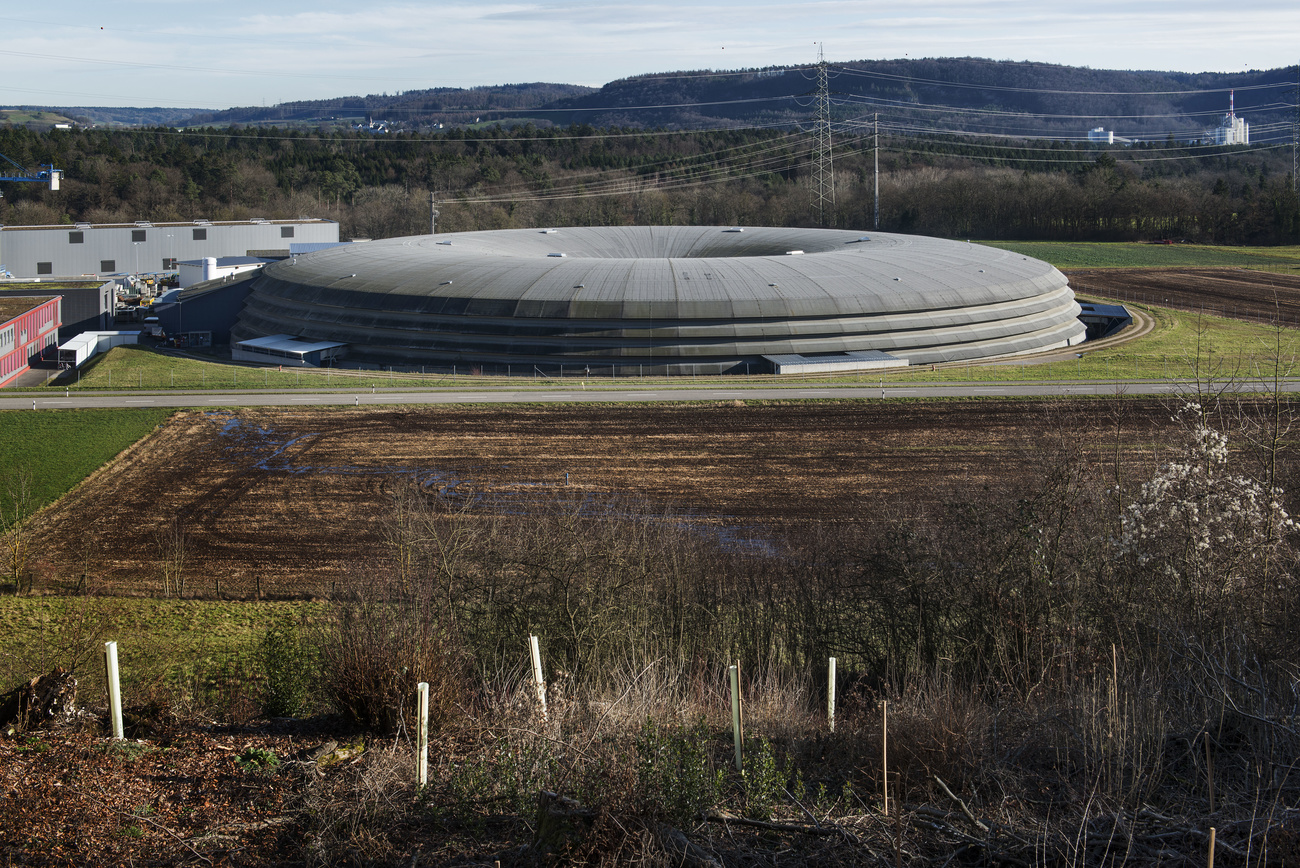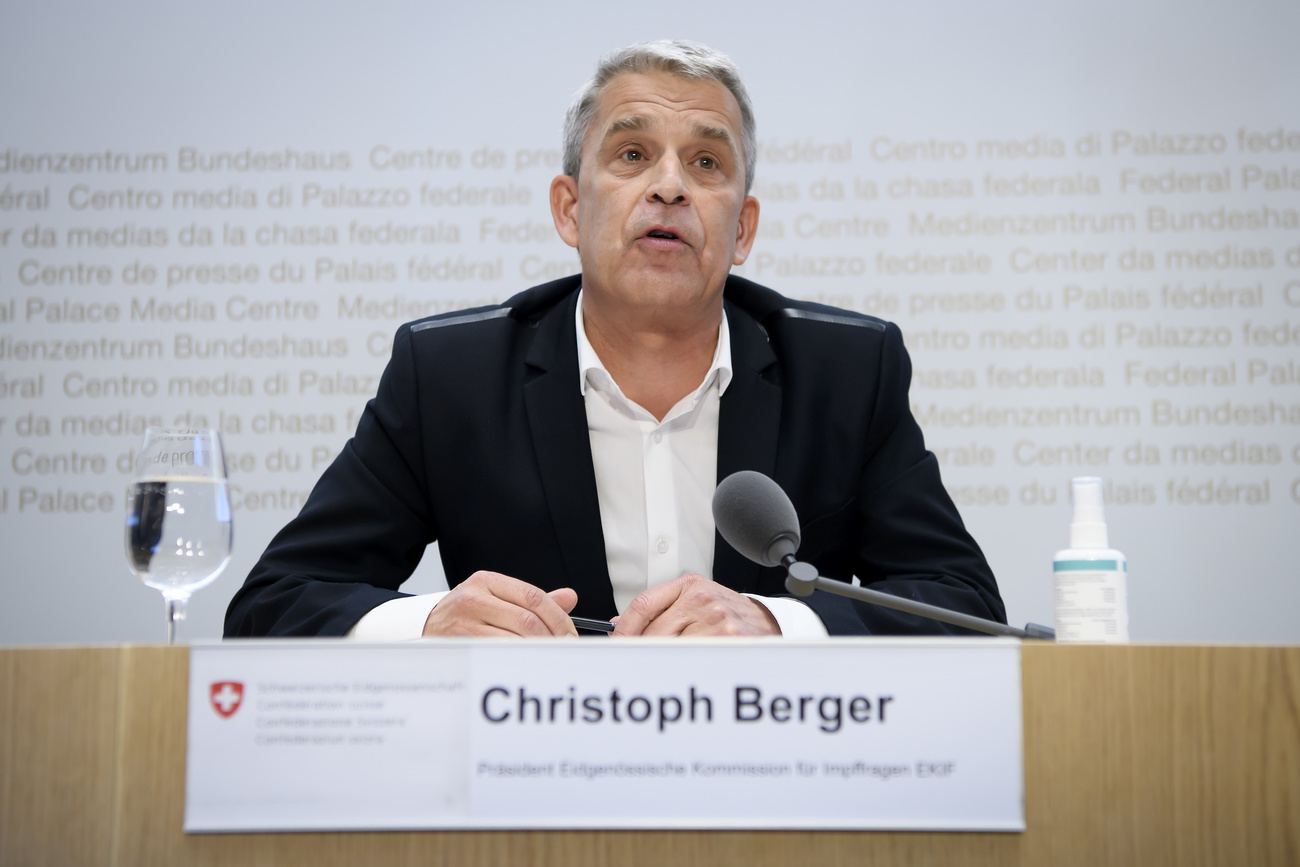Novartis CEO: ‘Our strategy is bearing fruit’

Novartis CEO Vas Narasimhan sees his company on a good growth trajectory in the coming years. In an interview with Swiss paper Finanz und Wirtschaft (Finance and Economy), he also emphasised his commitment to Switzerland as a business location.
+ Get the most important news from Switzerland in your inbox
Narasimhan is confident that Novartis will achieve its goal of increasing sales by an average of 5% annually by 2028. This will be made possible by eight to nine medicines, which Novartis expects to generate billions in sales. “The bigger challenge is to replenish the mid- and late-stage development pipeline so that we can grow until 2030 and beyond,” he told Finanz and Wirtschaft.
According to Narasimhan, the expiry of patents over the next few years is also not a threat to Novartis’s growth target. “Key products such as the psoriasis treatment Cosentyx, whose patent protection extends until the end of the decade, and numerous other products that are already on the market, as well as market launches, should make this possible,” he said. Until then, Novartis is not dependent on acquisitions to achieve its goals.

More
Whatever happened to the world’s most expensive drug?
Nevertheless, Novartis wants to keep its eyes open for acquisitions. Narasimhan wants to concentrate primarily on Novartis’s core therapeutic areas and on technologies in which Novartis is a leader or wants to become one.
The focus will be on smaller acquisitions. However, Novartis will continue to look for larger deals of up to $10 billion or more. However, the track record for these big deals is “rather poor”, Narasimhan continued.
Sales and profit growth expected in 2025
Although Novartis has not yet issued any guidance for 2025, Narasimhan expects both sales and profit growth next year. Growth is then expected to accelerate further in the coming years.
The company’s market capitalisation was around $200 billion, with Alcon, Sandoz and the over-the-counter drug business still part of the group. Today, it is around $230 billion. If you add in the value of Alcon and Sandoz, the result is value creation of around $100 billion. “This shows that our strategy is bearing fruit,” Narasimhan said.
+ What’s behind the Novartis job cuts?
Narasimhan considers the core profit margin of 40% achieved for the first time in the third quarter to be sufficient. “Higher margins are generally not rewarded in the pharmaceutical industry, as they come at the expense of investments in research, development and sales growth,” the company boss continued. He would therefore rather look for opportunities to invest in research and development or to accelerate the market launch.
Commitment to Switzerland
In the interview, he refuted speculation that he wanted to leave Switzerland. He emphasised that he has now lived in Switzerland for ten years and is firmly anchored here. “Our lives take place here,” he said.
Novartis is also firmly anchored in Switzerland and Basel. Switzerland is part of Novartis’s identity. “That will remain so. We are focusing on further expanding the success of Novartis,” Narasimhan continued. This will bring more prosperity to Switzerland in the long term.
Inflation Reduction Act
Novartis has already factored price reductions due to the Inflation Reduction Act (IRA) in the US into its forecasts. “The biggest concern is that the shortened duration of free pricing and the planned extension of price negotiations to more and more medicines will prevent the development of some medicines in future,” the company boss continued. This would inhibit innovation.

More
Roche’s big bet on big diseases
For example, this could inhibit the development of new drugs for rare diseases, neurosciences or heart disease. Narasimhan cited the drug Kisqali as an example. If the IRA had been in force before, its efficacy in patients with breast cancer would hardly have been investigated, as the price protection would have expired. “Millions of women would not have received better treatment to prevent a recurrence of their breast cancer,” Narasimhan told the paper.
Politicians had not considered this when designing the IRA. According to Narasimhan, “they should understand it now because otherwise whole classes of drugs will not be developed.”
Translated from German by DeepL/jdp
This news story has been written and carefully fact-checked by an external editorial team. At SWI swissinfo.ch we select the most relevant news for an international audience and use automatic translation tools such as DeepL to translate it into English. Providing you with automatically translated news gives us the time to write more in-depth articles.
If you want to know more about how we work, have a look here, if you want to learn more about how we use technology, click here, and if you have feedback on this news story please write to english@swissinfo.ch.

In compliance with the JTI standards
More: SWI swissinfo.ch certified by the Journalism Trust Initiative


















You can find an overview of ongoing debates with our journalists here . Please join us!
If you want to start a conversation about a topic raised in this article or want to report factual errors, email us at english@swissinfo.ch.